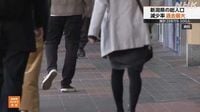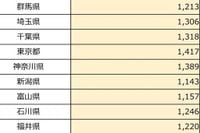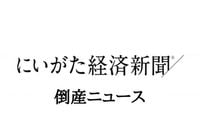In a recent survey conducted by En Japan, the operator of the comprehensive job site "Engage," the average hourly wage for part-time jobs across Japan has shown a significant increase. The survey, which covers March 2025, reveals that the average hourly wage in the three major metropolitan areas reached 1351 yen, while the national average stood at 1252 yen. Both figures represent an increase compared to the same month last year.
This upward trend in wages can be attributed to several factors. March typically sees a surge in the hiring market due to the graduation of student part-timers, creating a demand for filling vacancies. Additionally, the impact of rising prices and escalating personnel costs has also played a role in this wage growth. Specifically, the medical and welfare sectors have reported a notable increase, with wages rising over 100 yen compared to the previous year for two consecutive months.
However, not all regions are experiencing the same positive trends. In Niigata Prefecture, the average hourly wage is reported at 1143 yen, which marks a decrease of 98 yen from the same month last year. This decline is part of a broader trend observed in the Tohoku region, where reductions in wages have been particularly pronounced.
In a related economic development, the Tokyo Shoko Research Niigata Branch has reported that Blue Way, a clothing and general merchandise retailer based in Shibata City, Niigata Prefecture, has ceased operations as of March 3, 2025. The company, established in July 2009 and led by President Toshiyuki Sato, issued a notice through a lawyer, indicating its intent to undergo bankruptcy proceedings.
Blue Way has been a significant player in the retail and wholesale sectors, developing sales channels to government offices, hotels, ryokans, and supermarket chains. In addition to its wholesale operations, the company maintained a retail store at its headquarters and operated an online shop catering to individual consumers.
Despite these efforts, Blue Way faced challenges due to sluggish sales of personal products and intensified competition from other companies. Ultimately, these factors led to a decline in business performance, and the company reached a financial breaking point, prompting the current situation.
The total debt of Blue Way is still under investigation, and the post-processing of the company's affairs has been entrusted to lawyer Naohiro Wakasugi from the Wakasugi Naohiro Law Office in Shibata City.
As the job market continues to evolve, the contrasting situations of rising wages in some sectors while businesses like Blue Way struggle highlight the complexities of the current economic landscape in Japan. Stakeholders in both the job market and the retail sector are watching closely, as these trends will undoubtedly shape the future of employment and business practices in the region.
With the average hourly wage rising in many areas, workers may find more opportunities and better compensation for their labor. Conversely, the closure of companies like Blue Way serves as a cautionary tale about the challenges businesses face in an increasingly competitive market.
As Japan navigates these economic currents, the interplay between wage growth and business viability will continue to be a critical topic for discussion among economists, policymakers, and the general public. The ability to adapt to changing market conditions will be essential for both workers seeking better pay and businesses striving to remain afloat in a challenging environment.






